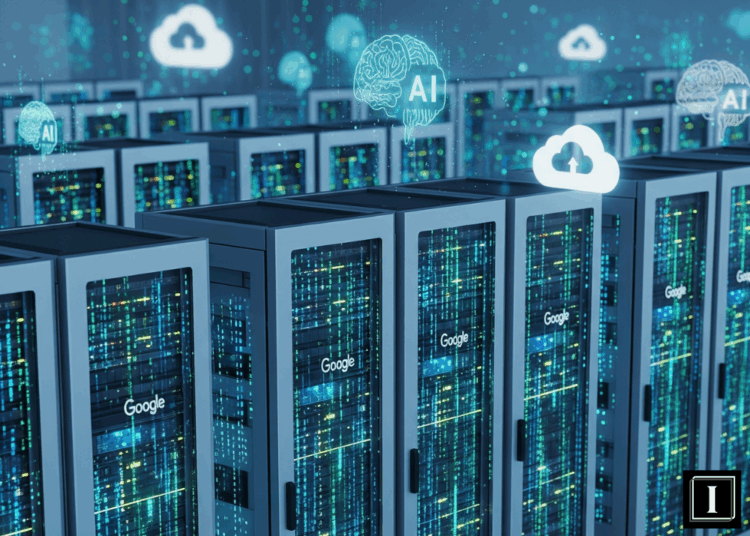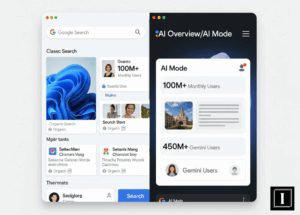Alphabet Inc. (GOOGL.O) delivered a strong performance in the second quarter of 2025, reporting total revenue of $96.43 billion, surpassing analysts’ expectations of $94 billion. This growth, driven by Google Cloud, AI adoption, and resilient advertising sales, solidifies Alphabet’s leading role in the ongoing tech race.
Alongside the earnings beat, Alphabet stunned investors by raising its 2025 capital expenditure (capex) target to $85 billion, up from its previously forecasted $75 billion. The company cited unprecedented demand for cloud computing and artificial intelligence (AI) services as the main catalyst for the revision.
Google Cloud Leads Alphabet Q2 Growth
A major driver behind Alphabet’s strong Q2 results was the exceptional performance of Google Cloud, which recorded a 32% increase in sales—significantly outpacing the projected 26.5%. CEO Sundar Pichai emphasized that this surge reflects a growing appetite for AI-integrated cloud services, such as Google’s Tensor Processing Units (TPUs), which offer an alternative to Nvidia’s widely used GPUs.
“The comprehensiveness of our AI portfolio, the breadth of our offerings—providing our models on GPUs and TPUs for our customers—has been really driving demand,” Pichai explained.
Additionally, the cloud division’s customer base grew by 28% quarter-over-quarter. In a notable development, OpenAI—maker of ChatGPT—added Google Cloud to its list of infrastructure providers, marking a strategic partnership despite being a direct competitor.

Alphabet Boosts Capex for AI Innovation
Alphabet’s updated $85 billion capex reflects its commitment to expanding AI and cloud capabilities to meet soaring global demand. CFO Anat Ashkenazi noted that the company still faces more demand than it can currently supply, especially in cloud infrastructure.
Looking ahead, Alphabet expects capex to increase even further in 2026, affirming long-term investment in AI to power future product improvements and enterprise solutions.
However, the steep increase in spending has raised some investor concerns about near-term profitability. “I don’t think anyone was expecting a change to that 2025 capex guide,” said Dave Wagner, portfolio manager at Aptus Capital Advisors.
Jesse Cohen, senior analyst at Investing.com, added that while growth prospects are promising, Alphabet must now focus on monetizing AI services more effectively to justify such high expenditure.
Digital Ads and AI Products Drive Engagement
Alphabet’s core advertising business also performed well, bringing in $71.34 billion—a 10.4% year-over-year increase that beat expectations of $69.47 billion.
Pichai highlighted that Google’s new AI-powered features like AI Overviews and AI Mode are helping to boost user engagement and strengthen the company’s search engine against competition from tools like ChatGPT.
AI Mode now has 100 million monthly active users, while Gemini, Google’s own large language model and ChatGPT competitor, has surpassed 450 million monthly users.
Dan Morgan of Synovus Trust commented, “Hopefully, this will damper concerns by the investment community that has been worried that products like OpenAI/ChatGPT could be having an impact on Google’s Search query growth.”
The AI Arms Race and Global Competition
Alphabet’s earnings and investment trajectory come as Big Tech faces fierce competition from Chinese AI firms. Despite concerns over ROI timelines, Alphabet defends its AI spending as critical for long-term leadership in the space.
So far, major tech companies are expected to invest more than $320 billion collectively in AI infrastructure in 2025. Google’s aggressive capex shift signals its determination to stay ahead in the global AI arms race, particularly against challengers from China.
With AI shaping the future of cloud, advertising, and search, Alphabet’s Q2 performance reinforces its position as a dominant innovator—but investors will be watching closely for how effectively it turns investments into scalable profits.
For more deep dives into AI strategy and innovation, read IMPAAKT—your top business magazine for visionary tech insights.












